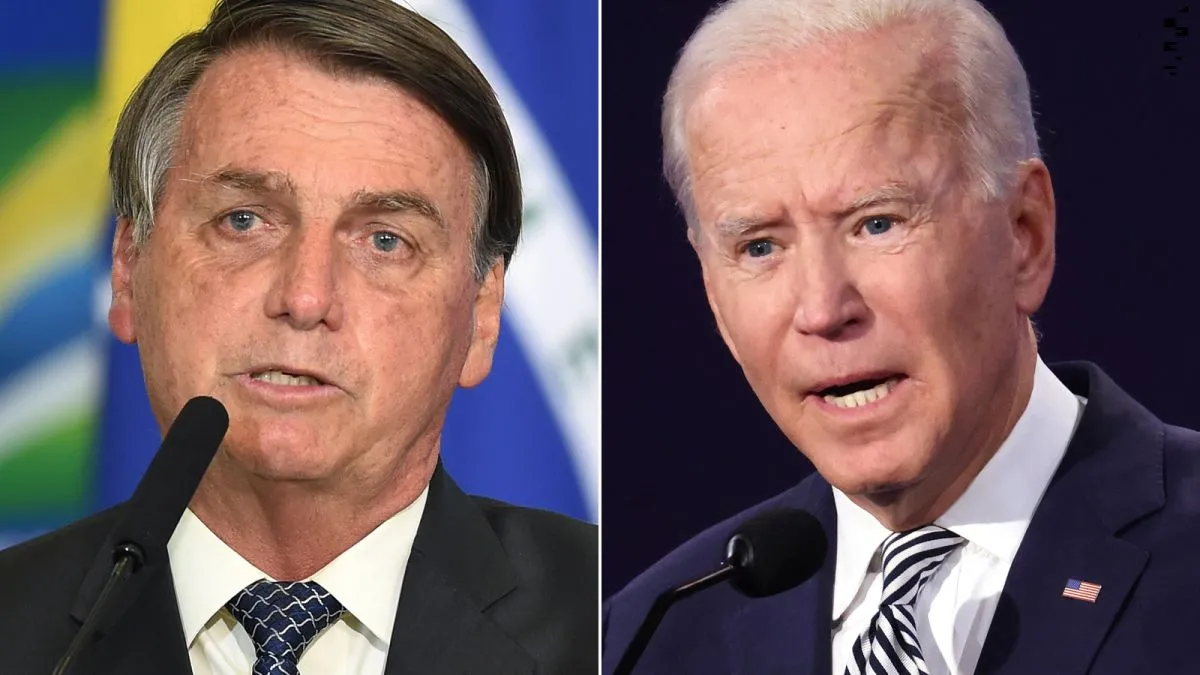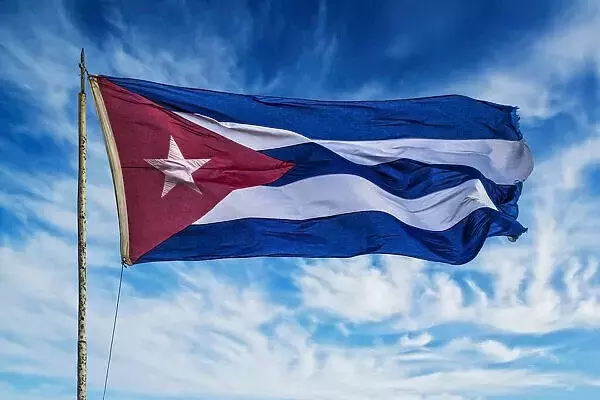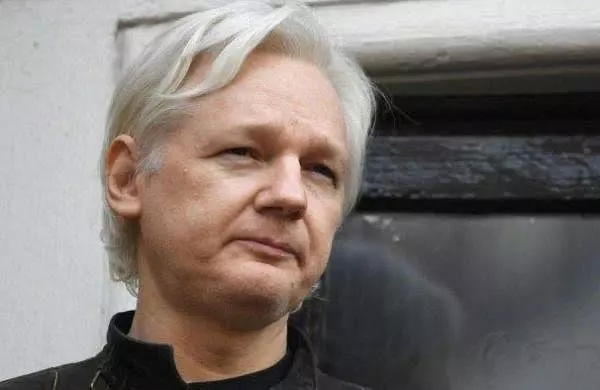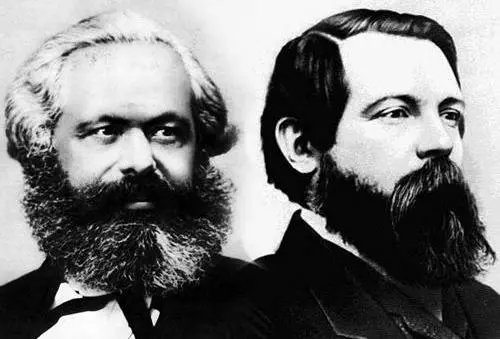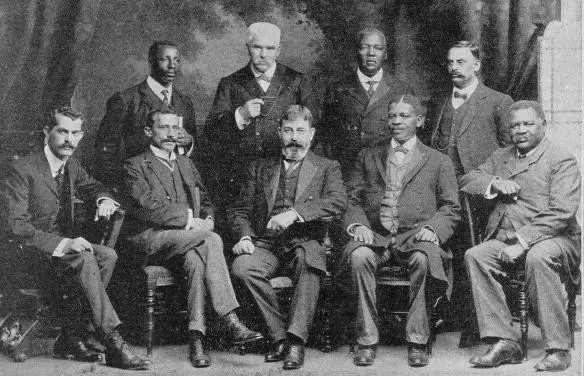At the moment, Brazil is going through a Parliamentary Committee of Inquiry, in which the government of the Presidency is having its management during the pandemic investigated for alleged crimes of responsibility. As these facts are still occurring, and the minerva owl only takes off at dusk (to remember a classic Hegel idea), I would like to focus on some international and domestic political issues since the turn of the year 2020 to 2021, which now in May, have sharper outlines.
Certain is that the US presidential elections have always been a political event that has focused worldwide attention, at least since the end of World War II. This is because these elections not only define the direction that domestic issues will take, an exclusive problem for its citizens, but because they also define the direction of international relations as a whole. It is the nation that still has the greatest economic and diplomatic influence around the globe, a position that has been gradually questioned by the eastern giants, namely Russia and mainly China.
However, never before has Brazil shown itself with the spirits so involved with American politics. Pages were created to discuss the subject; digital newspapers follow the news in real time; commentators discuss the issue on television channels. There were even those who called, perhaps ironically, at the time of the elections, demonstrations in some Brazilian cities positioning themselves in favor of one of the candidates. We were wondering why such an interest.
The question that arises, at least in the most serious media of public discussion, is how Brazil’s diplomatic positioning with the USA will remain. At least since he was elected in 2018, or even during the campaign period, Mr. President of the Republic, Jair Bolsonaro, demonstrated a kind of automatic alignment – not to say ideological – with American interests, more specifically embodied in the figure of his head of state, Donald Trump. There were several examples of public demonstration of this alignment in these years of the Presidency, from the oldest to the most recent, such as Bolsonaro’s hasty criticism of Biden. I would like to focus our attention on eventualities that, in my view, have gone almost unnoticed by the media here.
In October 2020 we received a visit from the American ambassador Robert O’Brien. The President received him at the presidential palace, as he should in fact do. There, in the presence of our President himself, O’Brien spoke in an imperative and categorical way about how we should take a position on Huawei’s 5G technology, that is, from China. He did so, it seems, not in the form of advice (as it should have been), and without taking into account that he was communicating with a sovereign and autonomous country. He ignored the diplomatic-historical relations between our nation and China, or importance of the economic relationship we have with this country: a large part of our production of commodities goes there. The President seemed submissive. From there they went to Itamaraty, the headquarter of the Ministry of Foreign Affairs, where the message to be transmitted would be the same.
Donald Trump’s government then decided to change its strategy and dialogue directly with Brazilian companies, making a kind of lobbying so common in his home. Our companies were embarrassed by an invitation to a meeting requested by the US ambassador to Brazil. To put it another way, the US overrode the Brazilian government to pressure our companies not to accept Chinese 5G technology. And, once again, the Brazilian government remained silent. He did not comment on the matter at all.
This automatic alignment, transfigured into submission, causes to Brazil a certain inconvenience. With Biden’s victory, for obvious reasons, we now face a tough scenario. Problematic, to say the least. Anyway, we will have to wait a while. Some are afflicted, others not so much. In fact, as an addendum, invest in the creation of an electoral justice (in Brazil it has existed since 1932). With that, the elections might not have been so traumatic.
Meanwhile, Brazil’s domestic policy has also been problematic. Especially with regard to the conflict between the President and the majority of the parliament, in Brazil called “big center”.
The history of republican Brazil teaches us that the municipal electoral process works as a kind of retroactive thermometer that reveals the country’s political interests and trends, enabling a comparison with the previous national election. Even in the colonial period, the local leaders of the villages, elected to play the role of councilors – the real rulers – were more confused with power than the Governor General, who generally remained in the capital, removed from the real political reality of the rest of the country. They exercised power more directly where they lived, and abusive tax collection – compounded by the lack of investment and services – acted to further increase this separation.
This is because our true relationship with the “public thing”, manifested in everyday life, is in the space of the city. It is in this space that problems appear and torment us: we may lack water; perhaps the street lighting in the house is very bad, which makes it dangerous to come home at night from work; that the asphalt is full of holes; that the garbage hasn’t been collected in a week; that the lots are overgrown; public transport has been a problem, among other things… The city is not ONE reality, but it is overall reality. Hard, practical, tangible. The State and the Union are part of the imagination. We just believe that they exist, and we don’t quite understand how they work. A real luxury, which we only get in touch with through the newspapers, the internet, and Sunday lunch talks with the family. That is why the 2020 municipal elections open up possibilities for us to observe some factors, some trends. Not conclusions, but observations.
The first is that, in the last municipal elections, those identified with the traditional conservative policy stood out, mainly within the states. We do not need to mention names, but it is known that, in the State of Goiás itself, where I currently live, most of the elected mayors are already known to us in general. Or at least their families, or ties. Their parties, then, even more. The governor’s party, DEM, elected the largest number of mayors and councilors in Goiás. Some researchers from the research institutes speak of the difficulty of carrying out the work in these places. Some people are afraid of reprisals or persecution, depending on the response. Some worry whether the survey is actually anonymous, whether their businesses or homes are being booked. Opinion questions reveal complaints about the conduct of such politicians, their positions, their work. Even so, they are victorious in the elections.
Second, it became evident that the “Big Center”, already known for dominating the houses of the National Congress, is the one who really gets votes in the country. There was a very large electoral increase. The DEM, perhaps the party that grew the most, jumped from 268 city halls to 459. The PP jumped from 495 to 681. Even the PL, considered less expressive, jumped from 297 to 341. Joining with the Chamber of Deputies and with the Senate, with the center-right and center-left parties (although the latter has had a decreasing result, compared to the last elections) it holds more than fifty percent of the power in the country, without having to make precise calculations.
A third observation – which was highly publicized – is the expressive electoral increase in sectors of the left, mainly in the identity sector, which elected some councilors, increasing their representation in the LGBT’s candidates, women and black people. PSOL stands out, among these. Some political analysts pointed to a tendency of the Brazilian electorate towards progressive politicians, as if Brazil in 2020 had turned the page in Brazil in 2018 that elected a conservative president. But it will be? You see, in the case of the election of councilors, as there are many parties and many candidates – in Goiânia, the city where I live, there were more than 1,000 -, there is room for the election of some who represent a certain minority of the electorate. This increases the representativeness. But when the number of candidates and parties decreases, as are the candidates for mayor, even if only the capitals are observed, the population is still conservative, and not progressive. Even this increase in the electorate for this specific sector of the left was manifested only in the capitals. The interiors are still conservative.
Fourthly, a direct consequence of what was pointed out in the previous paragraphs: the electoral defeat of Jair Bolsonaro. He bet on the strategy of the opposition policy (no PT, no Lula, no left, no …), in the context of cultural war, and in the figure of outsiders. He was unable to elect anyone relevant. Even the PT, at its peak, elected 559 city halls in the 2008 elections. In addition to the factor of halving emergency aid, as well as the latest controversies that circumscribe the general theme of the pandemic, the latest polls point to a relative drop in popularity. . The trend that became evident is that it was necessary to align with Centrão in order to achieve governance and the implementation of reforms.
This alignment could have come in the form of a softer and less radical stance, in statements and positions; to assign parts considered important by the government in the reform projects, mainly the tax; but it seems to have gone in the way of an allotment of important government positions. The consequences of this relationship are still being drawn.
Last Christmas was not the best. Everything indicates that the next one will follow the same path. Not only due to the pandemic, but also due to the economic crisis that has been going on since before the first cases of coronavirus in Brazil.
Certainly politics shares this somewhat atypical and worrying climate. The rulers of the most varied levels, at this moment, must (or should) have their hair standing on end. Some for noble reasons, others not so much. In addition to the discussion whether Mr. President really “doesn’t care” about matters involving this controversial topic, I would like to raise another question. According to data consulted on the transparency portal – an important tool conquered by our democracy – last year, at least financially speaking, it was not the worst for him, personally.
Exactly R $ 19,188,856.91 was spent on the Federal Government Payment Card (CPGF), in confidence, from January to December 2020 (The minimum wage is R $ 1088.00). Obviously, not all of these secret purchases are the direct responsibility of the President, since they also include the expenses of ABIN, GSI, the Special Secretariat for Administration and the Vice President’s office. But they are certainly under your umbrellas. With the personal corporate card, it was R $ 7.86 million. It is not easy to spend this money.
We know that the salary for the office of President of the Republic is symbolic, since you have an unlimited card. Even so, it’s a lot of money. Interestingly, during the campaign the conversation was different: austerity. And if only we knew where this money is going, it would not be so emblematic. For example, in February Mr. President said he spent R $ 739 thousand on the corporate card to bring home Brazilians who were stranded by the pandemic in Wuhan, China. We can only prove this by taking his own word, since card expenses are confidential. And we don’t have a tradition of believing what politicians say.
In November 2019, the Federal Supreme Court declared the fact that the data was confidential to be unconstitutional. The Presidency replied only that it was supported by the Access to Information Law (LAI). A whole year has passed and spending continues to rise. There are those who say, in public discussions, that this card may be being used to buy goodies for people whose mouths are of direct interest to the cardholder. Some say that the card may be the key to discovering corruption schemes within the federal government. President could end this conversation himself, but he chose to keep it a secret. So, asking doesn’t hurt: what has all this money been spent on? At where? If they have been more or less republican? They could be defended by the then mayor, Rodrigo Maia, to be considered for the election of the new president of the house, but this did not happen, and the doubt still persists.
Regarding the pandemic, experts and health authorities pointed out that a major collective action, of unity, should have been promoted and encouraged by the Federal Government. In the opposite direction, the Ministry of Health presented a certain aspect of confusion, relative ineptitude, conflict … As if authority, disputed internally, was a more urgent matter than the health crisis itself. This dispute went through the three Ministers of Health – namely, Luiz Henrique Mandetta, Nelson Teich and Eduardo Pazuello – and added to all the controversy over the medicine sponsored by the head of the executive branch, almost four months ago that the portfolio was officially vacated. Conveyed an idea of personal vanity, which reinforces the apparent lack of concern with what appears as the biggest health crisis in the history of the Republic.
For these and other factors, the economy shows no sign of recovery. Important names in Brazil, such as Delfim Netto, Celso Pastore, Luiz Gonzaga Belluzo, Bresser Pereira, to name just a few examples of great economists being heard in the main media outlets, arrive at slightly different statistical results but agree that the situation, although eased by Emergency Aid, it is very difficult. The main problems, that is, the fiscal crisis and public deficit, cannot be solved with the aid. This, multiplied by three by the National Congress – the executive had proposed only R $ 200.00 -, only momentarily reheated the market, mainly for food and materials for civil construction, which shows the lack of a population that, with money in hand, looked for food and, who knows, finish a wall or a little bit on the ground, cover the garage … Let us also say that this violent downturn in the economy is not the only and exclusive consequence of the new coronavirus, considering that the rates of 2019 – when this crisis was even imagined – were also negative. But even so, the aid also served to warm up the polls that favor the president. The question that arises is whether this recovery will also be momentary now that the reduction of aid to less than half is already being felt in the pockets and in the market.
This economic situation is expected to be aggravated. If the reaction to the fires in the Amazon and the Pantanal were discreet on a domestic level, there would not be international pressures. The Ministry of Agriculture is having to deal, at this very moment, with the dissatisfaction of the agricultural sector, which certainly sees in this environmental tragedy an unfortunate occasion for the loss of exports. Remember the oil crisis of indefinite origin that affected more than 250 cities on the Brazilian coast, damaging the local economy that depends not only on tourism in tourist havens – such as Porto de Galinhas, Morro de São Paulo, Lençóis Maranhenses-, but also fisheries and other systems that link workers to activities that depend on nature. Not to mention the environmental damage that, affecting both fauna and flora, was and is incalculable. In both situations, one thing is undeniable: the government reveals more examples of the lack of project and unity. Had it not been for the actions of the population that spontaneously and voluntarily dedicated themselves to getting their hands dirty to clean and help the region, at that time, nothing would have been done that was relevant. The Minister of the Environment, Ricardo Salles, appeared at the time without warning any mayor or governor, instead of calling a meeting and showing solidarity.
Brazil’s situation on the international stage is aggravated by the president’s acid attitude towards his main trading partners. The latest controversies surrounding the relationship with China do not require comment. What is most evident is that we should expect retaliation. The Chinese Consulate in Brazil has already informed that it intends to gradually replace imports from Brazil, mainly grains. Our most obvious competitor is India, but the list also includes Argentina and the United States, for whom we assume a position of submission. Although it is difficult to replace the products of a power such as Brazil, we do not have a monopoly on producing absolutely nothing, which makes our posture irresponsible – to say the least. This same stance was adopted with two other important partners: Argentina – when Alberto Fernández was elected – and France – not even President Macron’s wife was spared. With the election of Biden, the scenario becomes even more dramatic.
The aesthetics of the quarantine came close to an aesthetics of the State of Siege in wars. Economies around the world are on the verge of collapse and, without a new “Marshall Plan”, the situation is complicated. It seems that China will finance this plan, taking advantage of the international “absence” of the USA, which are struggling to recover themselves from the same problem.
There is a consensus that just like China, despite its extraordinary success in getting out of the crisis, Brazil must change the path. It would be necessary to build a development that is based on the expansion of the domestic market, considering that until today the economy was based on the export market. That is, an audacious project of redistribution between regions, classes and sectors. And, therefore, it is a controversial change that involves many conflicts. In order to make such changes possible, a wide national debate is necessary.
In the trade and services sector, small and medium-sized enterprises are breaking down or sinking into debt. However, banks are healthier than ever. In the beginning, mid-February and early March, it was speculated among analysts that original ideas would be needed to solve the economy-problem, but the Ministry of Economy has lost its timing. At least, he should have followed the examples given by the United States, Europe and Asia. As they pointed out: to save micro and small companies especially, one could have opened a credit line in private banks for working capital loans (payrolls, among others), for a few months. The guarantor of this loan, at zero interest, could have been the Central Bank. There would be a grace period of two to three years. This is what has been adopted in other countries as an economic measure to maintain jobs, entrepreneurs, and monetary circulation. For that, leadership and unity would be necessary, but the portfolio, like what happened with the Ministry of Health, also seems confused and without a project.
In any case, a new assessment may be carried out at the end of the year and according to the directions that the recent incidents will take. The problem that arises is how Brazil of 2018, which elected Bolsonaro, will resolve its contradiction with Brazil of 2021. If it is defeated, with the deepening of the economic crisis and the continuation of the pandemic situation, its political situation may be directed towards extreme solutions. The year 2021 is running now, and while we are reflecting on this, the executive branch, in the figure of its boss, is preparing an action plan that is already giving us something to talk about.
